“The simplest tasks are by no means the easiest.”
|
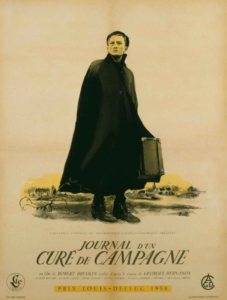
Synopsis:
A sickly young priest (Claude Laydu) in the French countryside struggles to bond with his suspicious parishioners.
|
|
Genres, Themes, Actors, and Directors:
- Character Studies
- Downward Spiral
- French Films
- Priests and Ministers
- Robert Bresson Films
Response to Peary’s Review:
As Peary notes, this “award-winning film” by writer/director Robert Bresson — based on a novel by Georges Bernanos — is “somber and slow” but sustains a “haunting, almost poetic quality” throughout. Peary argues that the film’s titular protagonist (effectively portrayed by non-actor Laydu, who went on to pursue a film career) is “a typical Bresson hero in that he is extremely introverted and incapable of social conversation; … feels isolated; … has grave self-doubts; and suffers terribly, … not only from guilt and spiritual malaise… but physically as well”. Yet “Bresson admires this individual because he somehow retains his faith through [a lengthy] period of terrible despair”. The storyline itself is sparse but oddly compelling, simply following Laydu as he attempts (usually in vain) to connect spiritually with his parishioners, meanwhile assuaging his increasingly crippling stomach pains with wine (leading those around him to unfairly suspect him of alcoholism — though he’s never overtly seen as “under the influence”). What lingers longest in one’s memory of this introspective film are its many “memorable images”, courtesy of both Bresson’s unique vision and Leonce-Henri Burel’s “exquisite” cinematography; see below for a few representative stills.
Redeeming Qualities and Moments:
- A powerful tale of spiritual longing
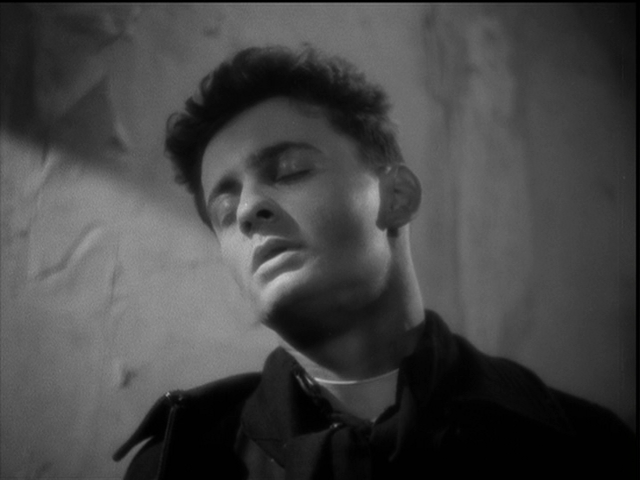
- Leonce-Henry Burel’s cinematography
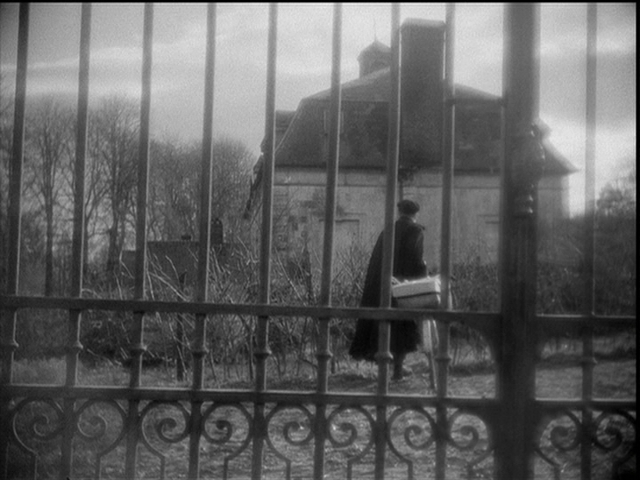
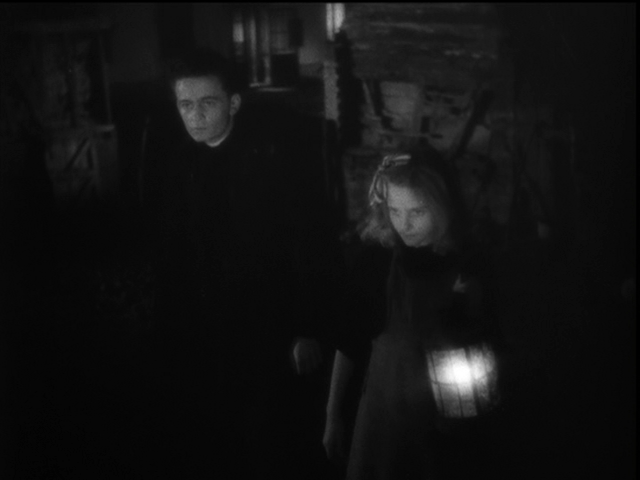
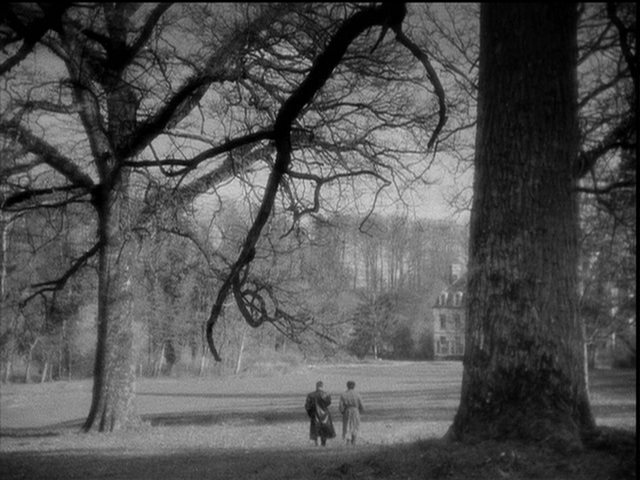
Must See?
Yes, as Bresson’s acknowledged “masterpiece”.
Categories
(Listed in 1001 Movies You Must See Before You Die)
Links:
|





One thought on “Diary of a Country Priest (1951)”
First viewing. Ultimately not a must.
It’s never easy to be a nay-sayer when it comes to something largely considered a classic (or a masterpiece) but I am extremely ambivalent about this film. I’m a fan of some of Bresson’s work (at least when it comes to certain titles which I very much recommend) as well as films that cover spiritual territory – but, in a way, I find this film to be something of an unintentional cheat: on the surface, it has the theme of trying to understand how God would have us conduct our lives – which appears to be a kind of lip service, since almost the entire film focuses on the rather tedious lives of spiritually misguided or even bankrupt characters. God can’t seem to get ‘a word’ in edge-wise here.
At one point, the main character is seen walking home through the woods – only to fall forward on his face, smack dab into a mud-covered ground. Watching the film, I knew exactly how he felt. If I had been him and had to deal with such unsavory characters on a daily basis – and found little or no spiritual guidance from my superior to bolster me – I’d’ve fallen face forward too. This poor priest – who often appears as a helpless innocent – just doesn’t get a break. (I don’t agree with Peary that the priest is “incapable of social conversation”; he’s often rather effective in expressing his point of view – he just seems to be thwarted at most turns.) In this film, there is practically no respite from indifference. When there *is* pointed conversation/speculation about how to rise above human frailty to be in line with a higher calling, vagueness rules in the dialogue – and don’t be surprised if you find yourself wondering just what the hell the characters are talking about. (The long sequence between the priest and the countess has particularly daunting mood shifts as it fails to connect dots.) It can border on convoluted. …But, then, steeped as the film is in needless guilt-inducing Catholic ideology, that is hardly surprising.
‘Diary…’ runs just under 2 hours – and the time feels doubled. Although, refreshingly, quite a few of the scenes are short, as the film reached its last half-hour or so, I started wondering if the thing was *ever* going to end. I happen to love long films. But it seems cruel to make an audience sit through something that is just chasing its tail (which, more or less, is what ‘Diary…’ does).
Even though I felt the film pushing me away as it progressed, I still noticed that it is occasionally sprinkled with a well-turned line concerning human observation and the twisted nature of those who have cold or hard souls. But, for a film with a spiritual message…good luck finding it!
The film does at times have evocative photography. And Bresson is to be commended for coaxing rather natural performances out of a non-professional cast. But this is one dreary film. Not that there’s anything wrong with dreary films…unless they are this aimless, unsatisfying and oddly impenetrable.